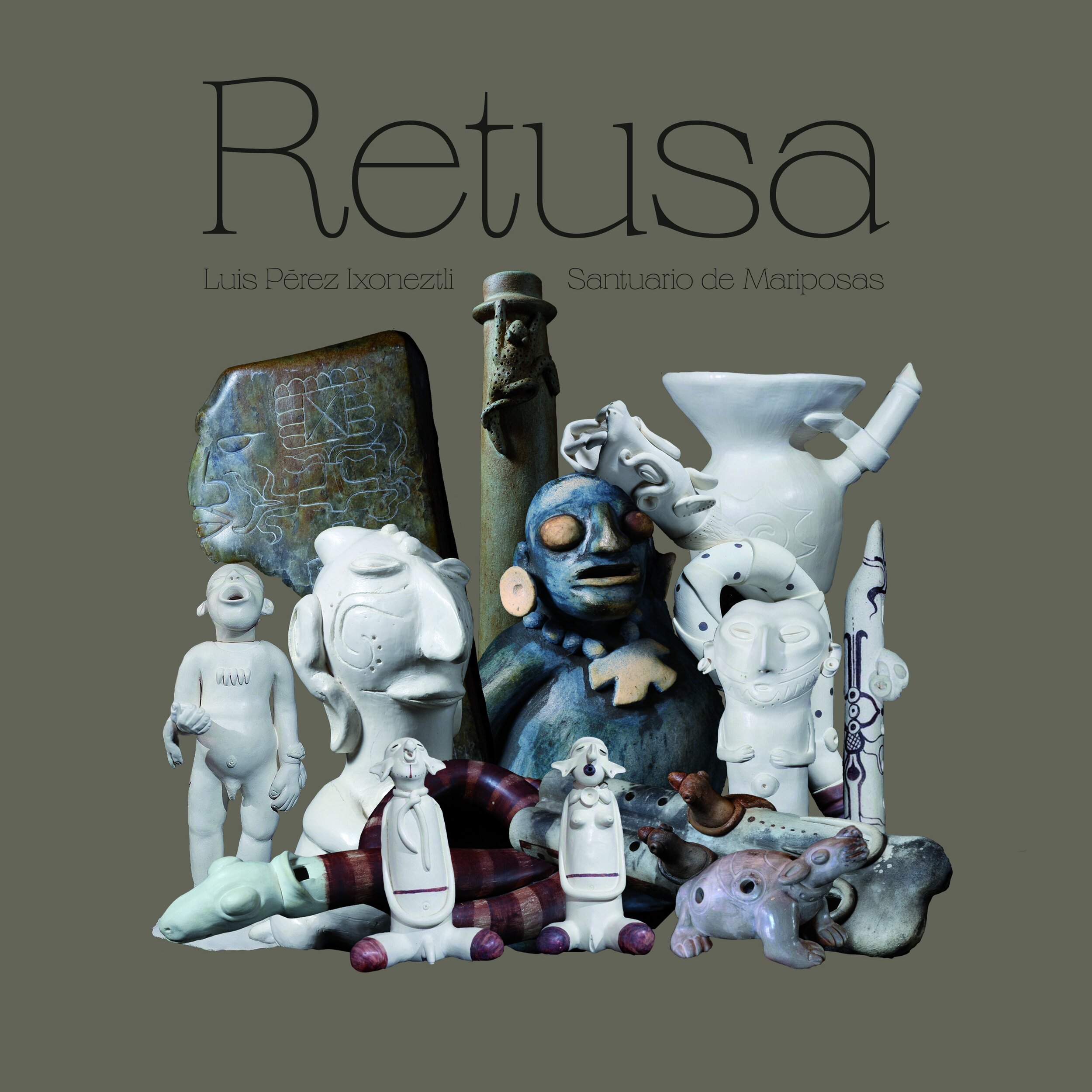Words by Justin turford
The reissue of this barely heard album by the Mexican composer, ethnomusicologist and multi-instrumentalist Luis Pérez Ixoneztli is really quite extraordinary. Released as a very limited CD in 1989, the new Madrid based label Tokonoma Records have done us a great service by finally getting this out there on vinyl and download as it is a remarkable sonic and ritualistic journey into a highly researched but imagined past. A past of the Pre-Columbian era (roughly from the original settlement of both Americas in the Upper Paleolithic period all the way to the European invasion and partly beyond, so a long time), and especially those civilizations that existed and disappeared in the landmass we now know as Mexico. What did the music of the Mayans sound like? The Incans? The Aztecs? What was it for? Ixoneztli has tried to answer this and the result is hypnotic, transcendental, at points unsettling and at other ecstatic.
When we think of this kind of ethno-music from the 1980s, we probably think ‘world music’, a term widely disparaged now as simplistic, possibly even colonial in it’s non-specificity but at the time was a key marketing tool to get non-western music into the shops. Harm wasn’t meant but the lack of accuracy when describing a particular culture or region’s particularities helped create a public image of ‘world music’ as part of a homogenous whole, of musical tourism, of white people as gatekeepers for the rest of the world’s cultural artifacts. Another view of world music was the collaborative fusion of cultures to create a global music, where panpipes, Burundi drums and the Irish bodhrán could be the backing music for a western artist stretching out with a magpie’s eye for sonic difference. At it’s best we had Byrne and Eno’s ‘My Life In The Bush Of Ghosts’ or Peter Gabriel’s ‘Passion’ (also released in 1989) but there were many many terrible examples of unfocussed and lazy ‘ethnic’ and ‘New Age’ muzak. This record belongs to a separate space. A deep and exhilarating space where time has been extended over millennia where ancestral conversations take place, the dead can talk and the animals walk among us.
“Our past is cloaked in mysteries. We possess only sparks of truth, in the darkness of space and time. Ravaged by the new world order, the ways of the indigenous were put far behind us. Out of sight, out of mind. But not all is lost, yet. I have spent my life recovering and reviving the remnants of the music of Mesoamerica, across my culturally rich country, Mexico. This is my sound. This is my life journey.” Luis Pérez Itxoneztl
The four pieces of music on the album are named as movements and so they are. A flow of connected ideas that move carefully and bravely through different emotional and cerebral invitations. One of only two ‘songs’ in the traditional sense is the first half of ‘Tercer Movimiento’, a beautifully sung lullaby (or is it?) that seduces the listener into calm before a sense of entering a more dangerous environment appears, the jungle begins to intrude into the village square. Across the album, nature is front and centre, the instruments are ancient, lost, asleep but now aware and awake again. The jungle lives in ‘Primer Movimiento’, hand drums, flutes, bird whistles, guira-type instruments scratching and shuffling. Ixoneztli’s talk-singing suggesting ritual and guidance is suddenly interrupted by the blowing of some kind of horn which takes us deeper once again into the animals domain, the hunted, the hunter. I must mention here the quality of the production. Stick some decent headphones on and you are there, it’s hot, humid and all around you. Probably in you if you’re not careful.
Let’s not pretend this isn’t hallucinatory music. Reflecting and staring hard into the ancient past of Mexico means searching for magic. Like Pedro Santos’ Brazilian psychedelic masterpiece ‘Krishnanda’ from 1968, transformative spirituality and earthy folklore walk hand in hand, the imagining is led by the tones of the instruments, what is known of the dead cultures and of their ancestors living now and the musical remnants that still exist. Sometimes, it feels like we’re listening to a village in Central Africa, sometimes a Santerian funeral song such is it’s human transference. After all, how different could these people have been to us in all but detail? 'Santuario de Mariposas' translates as ‘The Butterfly Sanctuary’ and Ixonztli’s love for the environment is as apparent and profound as it must have been found for Mexico’s antecedents.
As a record, we could place this next to Moondog, Midori Takada, Jon Hassell and all kinds of top shelf electronic ambient artists with ease such is it’s depth and sophistication. Totally recommended (I went and bought the vinyl. So should you, it is a lovely thing, beautifully remastered and has an Obi strip which we like).
Luis Pérez Ixoneztli not messing about…
OUT NOW ON TOKONOMA RECORDS
BUY HERE! https://tokonomarecords.bandcamp.com/album/santuario-de-mariposas-retusa


